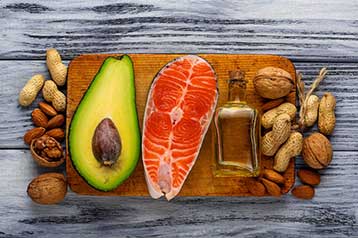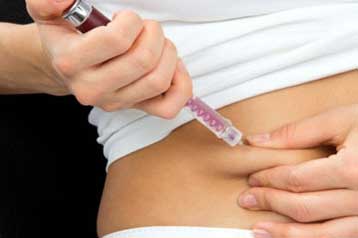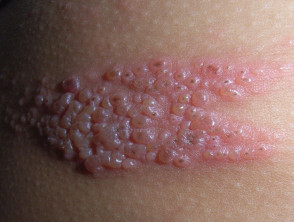2009 H1N1 Influenza Vaccine
and Pregnant Women
September
General Public
Q: Why does CDC recommend that pregnant women receive the 2009 H1N1 influenza vaccine?
A. It is important for a pregnant woman to receive the 2009 H1N1 influenza vaccine as well as a seasonal influenza vaccine. A pregnant woman who gets any type of flu is at risk for serious complications and hospitalization. Pregnant women who are otherwise healthy have been severely impacted by the 2009 H1N1 influenza virus (formerly called “novel H1N1 flu” or “swine flu”). In comparison to the general population, a greater proportion of pregnant women infected with the 2009 H1N1 influenza virus have been hospitalized. In addition, severe illness and death has occurred in pregnant women. Six percent of confirmed fatal 2009 H1N1 flu cases thus far have been in pregnant women while only about 1% of the general population is pregnant. While hand washing, staying away from ill people, and other steps can help to protect pregnant women from influenza, vaccination is the single best way to protect against the flu.
Q: Is there a particular kind of flu vaccine that pregnant women should get? Are there flu vaccines that pregnant women should not get?
A. There are two type of flu vaccine. Pregnant women should get the "flu shot"— an inactivated vaccine (containing fragments of killed influenza virus) that is given with a needle, usually in the arm. The flu shot is approved for use in pregnant women.
The other type of flu vaccine — nasal-spray flu vaccine (sometimes called LAIV for “live attenuated influenza vaccine)—is not currently approved for use in pregnant women. This vaccine is made with live, weakened flu viruses that do not cause the flu). LAIV (FluMist®) is approved for use in healthy* people 2-49 years of age who are not pregnant.
Q. Will the seasonal flu vaccine also protect against the 2009 H1N1 flu?
A. The seasonal flu vaccine is not expected to protect against the 2009 H1N1 flu. Similarly, the 2009 H1N1 influenza vaccine will not protect against seasonal influenza.
Q. Can the seasonal influenza vaccine and the 2009 H1N1 influenza vaccine be given at the same time?
A. It is anticipated that seasonal flu and 2009 H1N1 vaccines may be administered on the same day but given at different sites (e.g. one shot in the left arm and the other shot in the right arm). However, we expect the seasonal vaccine to be available earlier than the 2009 H1N1 influenza vaccine. The usual seasonal influenza viruses are still expected to cause illness this fall and winter. Pregnant women and others at increased risk of complications of influenza are encouraged to get their seasonal flu vaccine as soon as it is available.
Q: Is the 2009 H1N1 influenza vaccine safe for pregnant women?
A: Influenza vaccines have not been shown to cause harm to a pregnant woman or her baby. The seasonal flu shot (injection) is proven as safe and already recommended for pregnant women. The 2009 H1N1 influenza vaccine will be made using the same processes and facilities that are used to make seasonal influenza vaccines.
Q: What safety studies have been done on the 2009 H1N1 influenza vaccine and have any been done in pregnant women?
A: A number of clinical trials which test 2009 H1N1 influenza vaccine in healthy children and adults are underway. These studies are being conducted by the National Institutes of Allergies and Infectious Diseases (NIAID). Studies of 2009 H1N1 influenza vaccine in pregnant women are expected to begin in September.
Q: Does the 2009 H1N1 influenza vaccine have preservative in it?
A: There is no evidence that thimerosal (used as a preservative in vaccine packaged in multi-dose vials) is harmful to a pregnant woman or a fetus. However, because some women are concerned about exposure to preservatives during pregnancy, manufacturers will produce preservative-free seasonal and 2009 H1N1 influenza vaccines in single dose syringes for pregnant women and small children. CDC recommends that pregnant women may receive influenza vaccine with or without thimerosal.
Q: How many 2009 H1N1 influenza vaccine shots will be needed?
A: Some people, including pregnant women, may need two doses. We will know more about the number of doses once data from the clinical trials are available.
Q. What will be the recommended interval between the first and second dose if two doses are needed?
A. This will not be known until clinical trial data are available. We anticipate that 21-28 days will be needed between the first and second doses.
Q: Should the 2009 H1N1 influenza vaccine be given to someone who has had an influenza- like illness since between April and now? Do I need a test to know if I need the vaccine or not?
A. There is no test that can show whether a person had 2009 H1N1 influenza in the past. Many different infections, including influenza, can cause influenza-like symptoms such as cough, sore throat and fever. In addition, infection with one strain of influenza virus will not provide protection against other strains. People for whom influenza vaccine is recommended should receive the 2009 H1N1 vaccine, even if they had an influenza-like illness previously. It is not necessary to test a person who previously had an influenza-like illness. People for whom the 2009 H1N1 influenza vaccine is recommended should receive it, even if they have had an influenza-like illness previously, unless they can be certain they had 2009 H1N1 influenza based on a laboratory test that can specifically detect 2009 H1N1 viruses. CDC recommends that persons who were tested for 2009 H1N1 influenza discuss this issue with a healthcare provider to see if the test they had was either an RT-PCR or a viral culture that showed 2009 H1N1 influenza. There is no harm in being vaccinated if you had 2009 H1N1 influenza in the past.
Q: What are the possible side effects of the 2009 H1N1 influenza vaccine?
A. The side effects from 2009 H1N1 influenza vaccine are expected to be similar to those from seasonal flu vaccines. The most common side effects following vaccination are expected to be mild, such as soreness, redness, tenderness or swelling where the shot was given. Some people might experience headache, muscle aches, fever, nausea and fainting. If these problems occur, they usually begin soon after the shot and may last as long as 1-2 days. Like any medicines, vaccines can cause serious problems like severe allergic reactions. However life-threatening allergic reactions to vaccines are very rare. In 1976, an earlier type of swine flu vaccine was associated with cases of a severe paralytic illness called Guillain-Barre Syndrome (GBS) at a rate of approximately 1 case of GBS per 100,000 persons vaccinated. Some studies done since 1976 have shown a small risk of GBS in persons who received the seasonal influenza vaccine. This risk is estimated to be no more than 1 case of GBS per 1 million persons vaccinated. Since then, flu vaccines have not been clearly linked to GBS. GBS has a number of different causes, and GBS can occur in a person who has never received an influenza vaccine. The potential benefits of influenza vaccination in preventing serious illness, hospitalization, and death substantially outweigh these estimates of risk for vaccine-associated GBS.
Anyone who has a severe (life-threatening) allergy to eggs or to any other substance in the vaccine should not get the vaccine. People should always inform their immunization provider if they have any severe allergies, if they’ve ever had a severe allergic reaction following flu vaccination, or if they have ever had GBS.
Q. Can the family members of a pregnant woman receive the nasal spray vaccine?
A. Pregnant women should not receive the live nasal spray influenza vaccine but family and household members and other close contacts of pregnant women (including healthcare personnel) who are 2 through 49 years old, healthy* and not pregnant may receive live nasal spray vaccine.
Q. Can a pregnant healthcare worker administer the live nasal influenza vaccine?
A. Yes. No special precautions are (such as gloves) are necessary. Hands should be washed or cleaned with waterless hand sanitizer before and after administering the vaccine or having any direct contact with patients in a health care setting.
Healthcare Providers
Q. Where can healthcare providers obtain 2009 H1N1 influenza vaccine?
A. The CDC will be distributing the 2009 H1N1 influenza vaccine to each state. If healthcare providers want to provide H1N1 vaccine directly to their patients, they can contact their local health department to obtain H1N1 vaccine. Information to direct providers interested in obtaining vaccine to appropriate public health contacts in their state is available.
Q. How will healthcare providers obtain other supplies necessary for vaccination?
A. The vaccine will be distributed with a kit which will contain needles, syringes, sharps containers and alcohol swabs.
Q. How much does the vaccine cost?
A. The vaccine will be provided free; however, healthcare providers may bill for vaccine administration.
Q. If a pregnant woman delivers before receiving her second dose of vaccine, should she still receive the second dose?
A. Yes. In addition to protecting her from infection, infants less than 6 months old will not be able to be vaccinated so it is recommended that everyone who lives with or provides care for infants less than 6 months of age receive both the seasonal influenza vaccine and 2009 H1N1 influenza monovalent vaccine to provide protection for the infant.
One recent study conducted in Bangladesh, assessed the effectiveness of influenza immunization for mothers and their young infants. Inactivated influenza vaccine reduced proven influenza illness by 63% in infants up to 6 months of age. This study confirmed that maternal influenza immunization is a strategy with substantial benefits for both mothers and infants.






